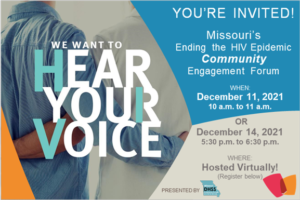Date: December 8, 2021
CMS intends to propose a national “Birthing-Friendly” hospital designation on the Hospital Compare section of the CMS Care Compare website, and also encourages states to provide 12 months postpartum coverage to people with Medicaid and CHIP
As part of Vice President Kamala Harris’s Call to Action to Reduce Maternal Mortality and Morbidity, the U.S. Department of Health and Human Services (HHS), through the Centers for Medicare & Medicaid Services (CMS), is taking steps to improve maternal health and support the delivery of equitable, high-quality care for pregnancy and postpartum care. CMS intends to propose a “Birthing-Friendly” designation to drive improvements in perinatal health outcomes and maternal health equity. The designation would initially identify hospitals that provide perinatal care, are participating in a maternity care quality improvement collaborative, and have implemented recommended patient safety practices.
In addition, CMS is encouraging states to take advantage of the American Rescue Plan’s (ARP’s) option to provide 12 months postpartum coverage to pregnant individuals who are enrolled in Medicaid or the Children’s Health Insurance Program (CHIP). This follows the release of a report by HHS’s Office of the Assistant Secretary for Planning and Evaluation (ASPE) showing the dramatic impact if states extended Medicaid postpartum coverage to 12 months. If every state adopted an extension — as proposed in the Build Back Better Act — then the number of Americans getting coverage for a full year postpartum would roughly double, extending coverage for an estimated 720,000 in a given year.
Medicaid and CHIP cover over 42 percent of births in the nation, nearly half of which are to Black, Hispanic, or American Indian/Alaskan Native individuals. Extending the postpartum coverage period can improve health outcomes during the postpartum period and mitigate health disparities for individuals served by Medicaid and CHIP.
“As a father to three daughters and husband to a high-risk obstetrician, I know nothing is more important as having healthy childbirth,” said HHS Secretary Xavier Becerra. “I’m proud that the Biden-Harris Administration has made maternal health and equity a priority. We will continue to take actions to support new parents and ensure safe pregnancies, no matter a family’s background.”
“No mother should have to fight for her coverage or care during pregnancy or while caring for a newborn. CMS is doing everything we can to support the health of new parents and families, and to advance health equity across the country,” said CMS Administrator Chiquita Brooks-LaSure. “Across the Biden-Harris Administration, we are committed to advancing equitable, high-quality maternity care, and reducing unnecessary postpartum illnesses and deaths that disproportionately harm people of color.”
Beginning with discharges on October 1, 2021, CMS adopted a new structural quality measure for the Hospital Inpatient Quality Reporting Program that asks hospital to attest to whether they participate in a statewide and/or national maternal safety quality collaborative and whether they have implemented the recommended patient safety practices or bundles to improve maternal outcomes. Through this measure and others CMS intends to propose, a hospital could be considered “Birthing-Friendly” with special designation on CMS’ “Care Compare” website.
Maintaining Medicaid and CHIP coverage for an extended period of time can help address persistent disparities that exist in pregnancy-related morbidity and mortality. One-third of maternal deaths occur between one week to a year after childbirth, and rates are especially high among Black women and American Indian/Alaska Native individuals. Expanded coverage helps to ensure access to the ongoing care people need during the postpartum period. It will also help individuals in the postpartum period manage chronic conditions like hypertension and diabetes, and provide access to behavioral health services.
Currently, Medicaid beneficiaries are entitled to continuous coverage through the end of the month in which their 60-day postpartum period ends. In states that adopt the new extended postpartum coverage option, individuals who are enrolled in Medicaid or CHIP while pregnant will be eligible for 12 months of extended postpartum coverage. Additional individuals who will benefit from a state’s election are those whose pregnancy ended within three-months of their application for Medicaid and who would have been eligible when their pregnancy ended had they applied earlier.
The State Health Official letter includes guidance and resources for states that take up the state plan option to ensure that the extended coverage leads to improved health outcomes for postpartum individuals. CMS is available to provide technical assistance to states as they extend postpartum coverage, implement innovative payment and delivery system efforts, and engage in initiatives to measure and improve quality aimed at addressing the needs of pregnant and postpartum beneficiaries. States that elect to provide the extended postpartum coverage option are encouraged to educate beneficiaries about the availability of extended postpartum coverage.
To read the HHS ASPE Issue Brief, visit: https://aspe.hhs.gov/reports/potential-state-level-effects-extending-postpartum-coverage
For more information about the Maternal Morbidity Structural Measure go to: https://www.cms.gov/files/document/maternal-morbidity-structural-measure-specifications.pdf
To see a copy of the State Health Official Letter, please visit: https://www.medicaid.gov/federal-policy-guidance/downloads/sho21007.pdf.

